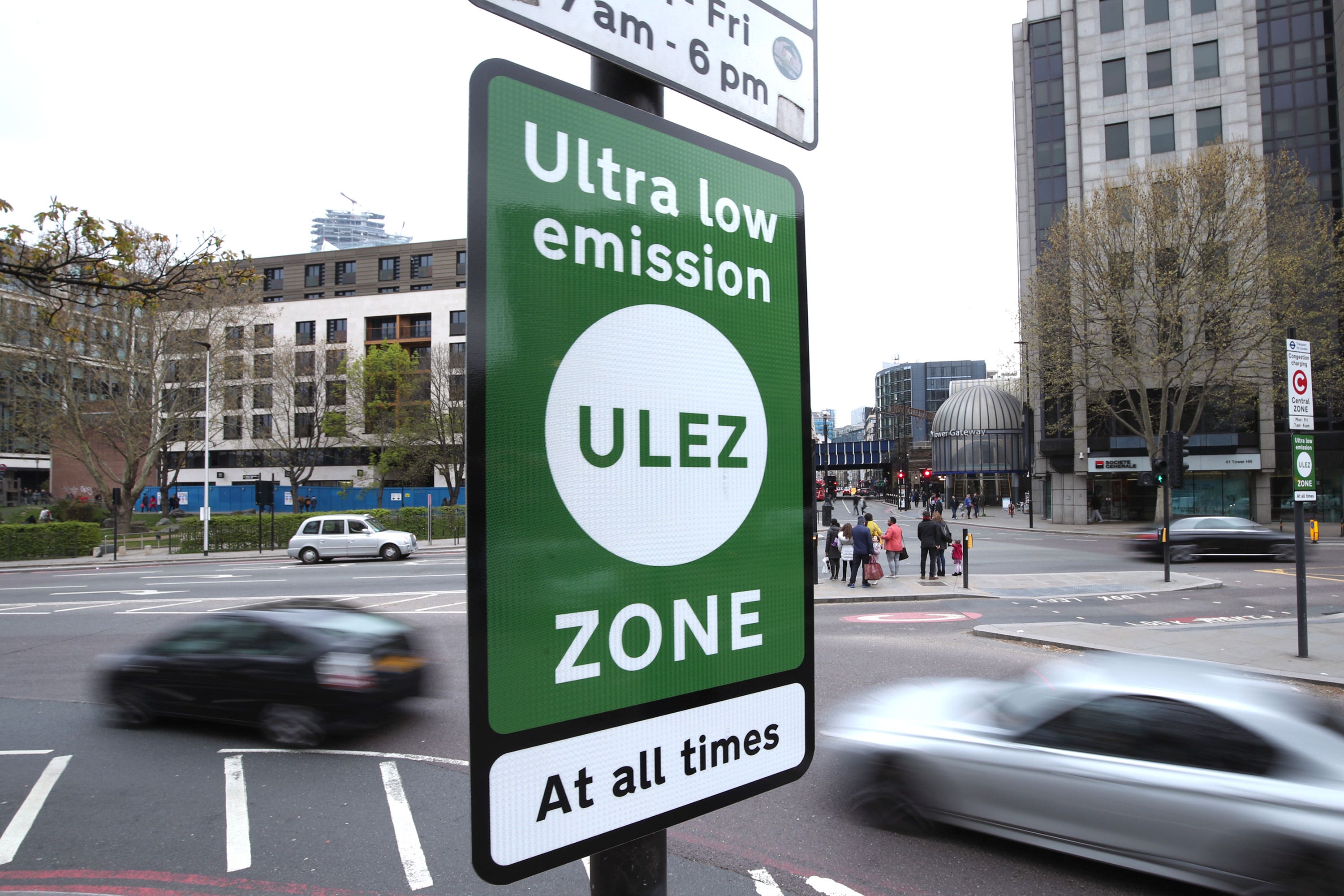How the Ulez scheme in London has tested party politics over pollution
Sadiq Khan hopes opposition to the clean air scheme will have dissipated by next year’s London mayoral elections, says John Rentoul


Sadiq Khan, the mayor of London, was blamed by many in his own party for Labour’s failure to win Boris Johnson’s former seat of Uxbridge in the by-election this month. Danny Beales, the Labour candidate, and Keir Starmer, the Labour leader, both implied that it was Khan’s refusal to pause the extension of his clean-air policy to outer London boroughs that denied them a famous victory.
Khan said he was “listening” to people’s concerns about the scheme, but now that the High Court has rejected a challenge to the scheme, the mayor has made clear that the ultra-low emissions zone (Ulez) will be extended from the area bounded by the north and south circular roads to the whole of Greater London on 29 August as planned.
So will the Ulez extension definitely go ahead?
Almost certainly. I understand that the councils that brought the judicial review case are not inclined to appeal against the High Court ruling: their costs are already high and their prospects of success are low.
In which case it is up to Khan to decide whether to listen to strong hints from Starmer to think again, and even blunter advice from Rachel Reeves, the shadow chancellor, who said now is not the right time to “clobber” people with the £12.50 daily charge for driving older, polluting vehicles in outer London. But Khan has already decided what he thinks of her advice.
Khan is not really listening, is he?
Khan insists that the scheme should go ahead for the sake of people’s health, but says that he has listened, and that he is making the scrappage scheme more generous. Until now, anyone on universal credit or some disability benefits was entitled to £2,000 towards a new car if they got rid of an old polluting one. From Monday, anyone with children is eligible for the scheme, and any company or charity employing fewer than 50 people will be able to claim £5,000 towards a new van.
How unpopular will Khan be after 29 August?
We are told that the mayor is confident that the hostility towards the scheme will die down when it comes into operation, and most people realise that it does not apply to them. Transport for London estimates that only 10 per cent of journeys in outer London are made by old vehicles that will be liable to the £12.50 daily charge. The mayor expects that this proportion will shrink fast, as people respond to the carrots as well as the sticks of the scheme. Indeed, some of Khan’s advisers are worried that behaviour will change so dramatically and quickly that the scheme will raise hardly any money – although the existing scheme raised £226m last year and cost £115m to run.
Isn’t that a bit optimistic?
It may not be, because there was a similar campaign against the last expansion of the scheme, which was extended from Zone 1 to the north and south circular roads two years ago. The anti-Ulez campaign was vitriolic, although it was not given the focus of a parliamentary by-election, but the fuss did die down once the extension came into effect. Khan, who was re-elected in May 2021, extended the zone in October, but has continued to lead in London-wide opinion polls by a substantial margin.
Khan faces the voters again in May next year, and has been helped by the Conservative Party’s problems: it has selected a candidate against him who admires Liz Truss and Donald Trump. No doubt Khan calculates that by the time of the election, opposition to Ulez will have dissipated – and even if it hasn’t, he has time to take further steps to make the scheme more electorally palatable.



Join our commenting forum
Join thought-provoking conversations, follow other Independent readers and see their replies
Comments